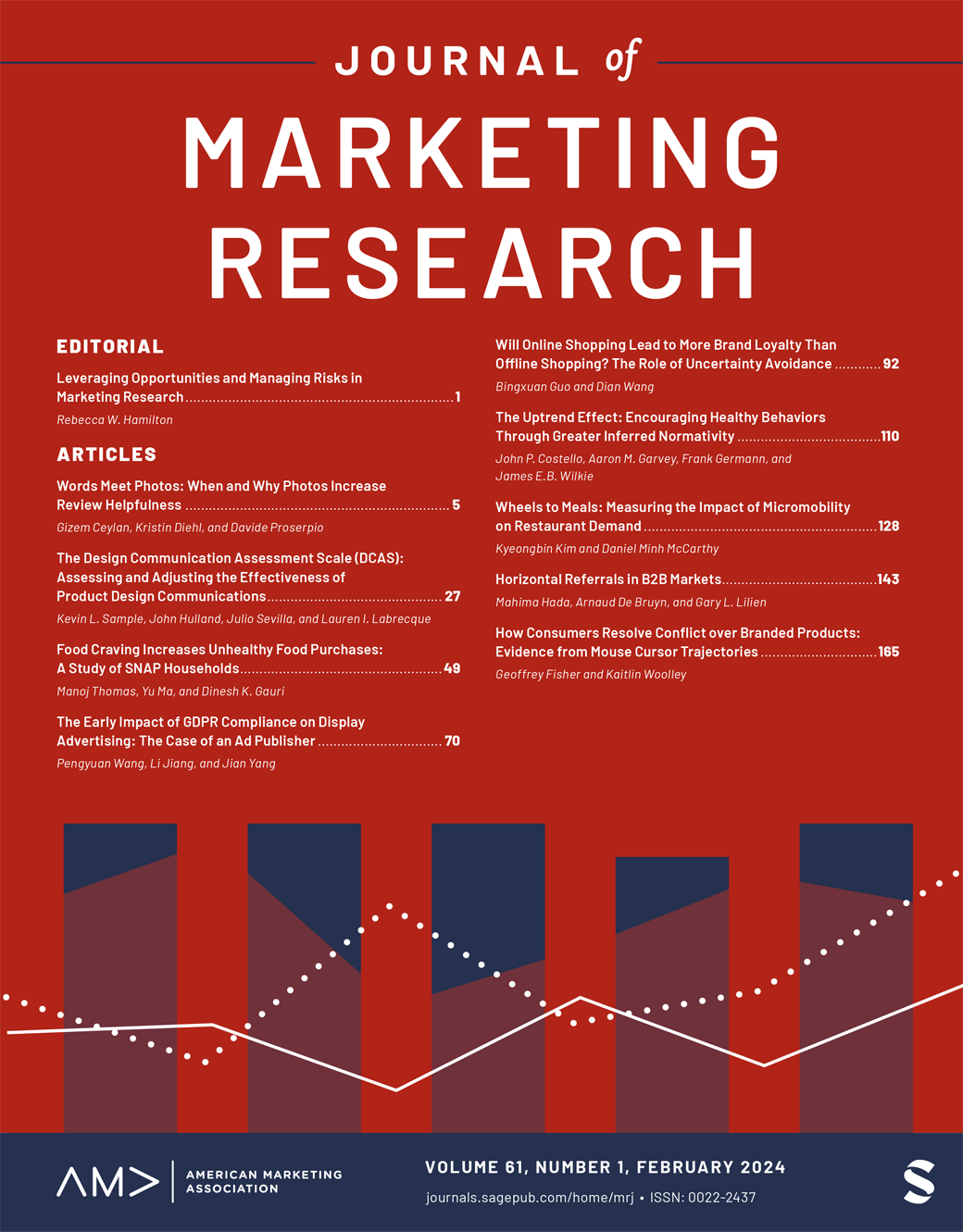EXPRESS: Brands in the Labor Market: How Vertical and Horizontal Brand Differentiation Impact Pay and Profits Through Employee-Brand Matching
IF 5
1区 管理学
Q1 BUSINESS
引用次数: 0
Abstract
The primary focus of brand equity research has been on how brand knowledge creates value for firms through customer behavior in product markets. Using archival data and five experiments, this article tests a framework that outlines the unique role brands play in the labor market. The framework distinguishes between vertical and horizontal differentiation and shows that vertical brand differentiation is associated with lower pay, whereas horizontal brand differentiation is associated with higher pay. Employees are also vertically and horizontally differentiated and firms high in horizontal brand differentiation pay more for employees who match their brands’ differentiating characteristics (i.e., brand-relevant complementarities). Results show that these brand-pay relationships have important downstream effects on employee behavior and, consequently, on firm profits. Specifically, leveraging vertical brand differentiation to lower pay represents a false economy because profits are attenuated by negative effects on employee productivity and retention. In contrast, when managers at firms high on horizontal brand differentiation pay more, profits increase via the same mediating employee behaviors. Six firm strategies and investments that influence firm bargaining power in the employee-brand matching process are found to moderate the brand-pay relationship and downstream effects on profits.EXPRESS:劳动力市场中的品牌:纵向和横向品牌差异如何通过员工品牌匹配影响薪酬和利润
品牌资产研究的主要焦点是品牌知识如何通过产品市场中的客户行为为企业创造价值。利用档案数据和五个实验,本文测试了一个框架,该框架概述了品牌在劳动力市场中发挥的独特作用。该框架区分了纵向和横向差异,并表明纵向品牌差异与较低的薪酬相关,而横向品牌差异与较高的薪酬相关。员工在纵向和横向上也存在差异,横向品牌差异化程度高的公司为符合其品牌差异化特征(即品牌相关互补性)的员工支付更多费用。结果表明,这些品牌薪酬关系对员工行为具有重要的下游影响,进而对企业利润产生影响。具体而言,利用垂直品牌差异化来降低薪酬是一种虚假经济,因为利润会因对员工生产力和忠诚度的负面影响而减弱。相反,当横向品牌差异化程度较高的公司的经理支付更多时,利润会通过同样的中介员工行为而增加。研究发现,在员工品牌匹配过程中,影响企业议价能力的六种企业策略和投资可以调节品牌薪酬关系和利润的下游效应。
本文章由计算机程序翻译,如有差异,请以英文原文为准。
求助全文
约1分钟内获得全文
求助全文
来源期刊

Journal of Marketing Research
BUSINESS-
CiteScore
10.30
自引率
6.60%
发文量
79
期刊介绍:
JMR is written for those academics and practitioners of marketing research who need to be in the forefront of the profession and in possession of the industry"s cutting-edge information. JMR publishes articles representing the entire spectrum of research in marketing. The editorial content is peer-reviewed by an expert panel of leading academics. Articles address the concepts, methods, and applications of marketing research that present new techniques for solving marketing problems; contribute to marketing knowledge based on the use of experimental, descriptive, or analytical techniques; and review and comment on the developments and concepts in related fields that have a bearing on the research industry and its practices.
 求助内容:
求助内容: 应助结果提醒方式:
应助结果提醒方式:


